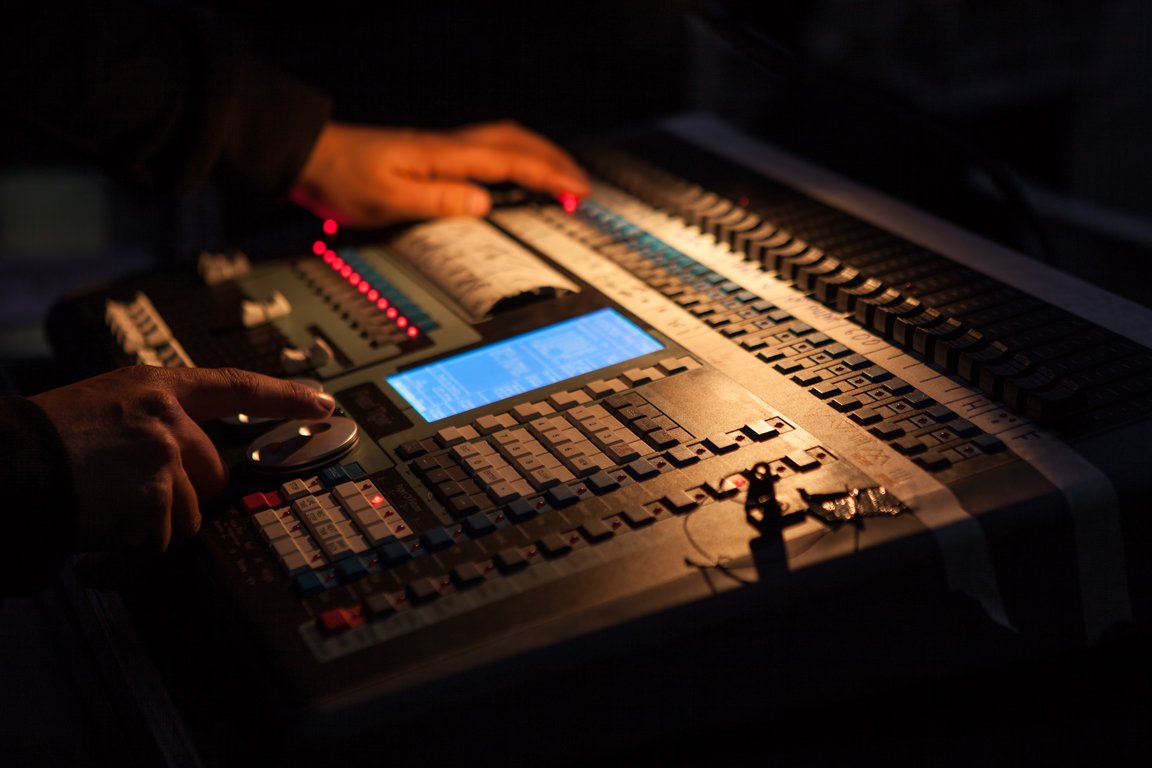Church Production Magazine: There’s no denying that advancements in LED lighting have changed the production landscape across the board. What church doesn’t want equipment that consumes less power? And one light that’s able to change color––who could go wrong?
The thing to keep in mind, however, is that LED lighting adds a level of complexity to theatrical control––a challenge for churches that rely heavily on volunteers, especially for large productions such as Easter.

4 comments:
I think this is so cool because, like they said, these lights can now be controlled by someone with fair knowledge about sliders and touch screens operating lights on a smartphone or tablet. The creating of LED lights that can be used, controlled, and programmed by regular people or volunteers - especially in the church environment like they're talking about, but even in situations like school lighting programs, displays, public centers, or traveling shows - could make LEDs not only more accessible to people but also make lighting a much more open field and allow for greater experimentation and use even by amateurs. And working from the phone also would allow for greater flexibility in design and control, allowing for tweaking if something changes quickly or something needs to be fixed on the fly. Thinking about these new control opportunities, I'd also be interested to see a light show here in the Wells entirely run that way, maybe on a collection of iPads. The concept is just so cool but the logical next step in lighting technology to integrate it to things people already know and make it easier and faster to use.
Churches are interesting forms in the entertainment industry because they are essentially putting on a type of production that may or may not require production equipment similar to that of a theater. I have read articles previously on the PTM blog about sound equipment in churches, and I feel as though churches really don’t need the high quality ETC consoles unless the space is completely without light. At my church the console is just a few sliders that a person watching the service hits when the priest moves around the room because the importance of high tech lighting instruments is not as high in a church setting, at least in my opinion. Even if there are Easter and Christmas services of more importance, that doesn’t necessarily justify spending thousands on a new lighting console. But, if churches do go that route, I wouldn’t mind getting paid to light design for a church service, so from my perspective, go ahead and spend the money!
LED technology is amazing. I love the fast change and creativity that an LED fixture provides. LED fixtures are great for places that want lights that can change color but don’t have a budget for 100’s of fixtures or the space for them. Add in the cost of the lamp and the gel and the electricity needed to operate them and the cost gets higher. LED fixtures are great for churches. Where the worry comes in is the dumbing down of installing and operating such equipment. Yes, some churches don’t have a tech budget while others have a budget that rivals most theatres. The concern is that as we make LED equipment and consoles easier to use for the non theatre person, we are at risk of eliminating jobs for specially trained theatre people. Individuals who have gone to school or worked in the field and learned about focus, lighting, angle, throw, bounce, color blending and so forth will be in less demand for places like churches. It also gives a false sense of knowledge to the person running the equipment that they can do it anywhere and it is just not the case. Yes, I support the ease of use of equipment, but there should be a line drawn about what we are making easy to use and have the conversation to prevent the loss of skilled labor at the expense of making things easier for the volunteer running the lights for Easter. Hey, while we are at it, maybe we can also instill some passion for tech in those youth volunteers.
I have always been curious about how churches use lighting and other theatrics to attract and entertain the churchgoers. Since the situation is different in a church from a theatre, the needs are different, obviously. And sometimes, when we combine something like church and lighting equipment usually used in concerts or in theatre, things may evolve from it that could further technology as a whole. In my opinion, I do not really understand the need for churches to have fancy lighting, but I have never been a part of a church, so I am not sure how valid my feelings on this subject are. I am sure that churches are just using these things to attract the younger demographics who love parties and concerts. Either way, some new technology may come out of it, and that is a definite plus for everyone! Teenagers are also learning to design lights in this situation as well, when they might not have gotten the chance at their school.
Post a Comment